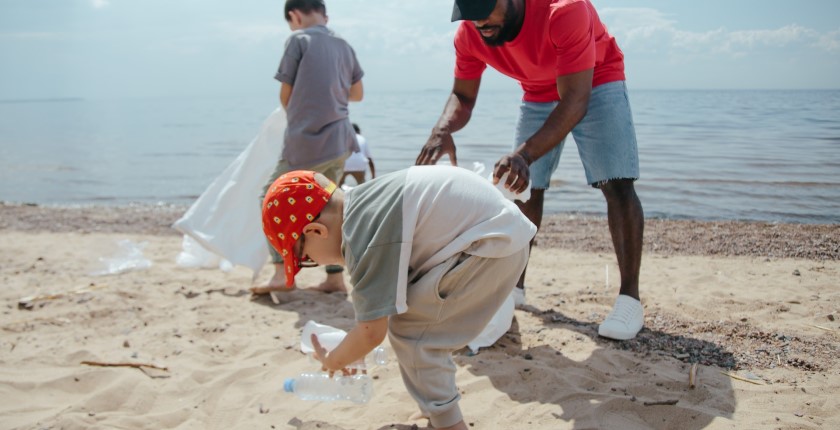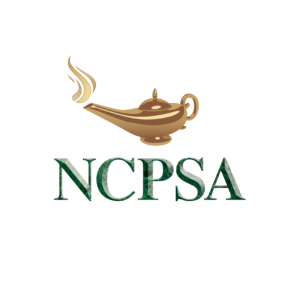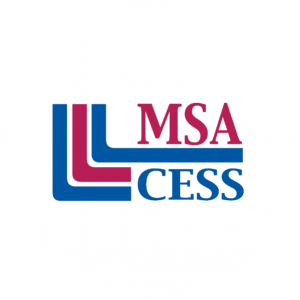“Never doubt that a small group of thoughtful, committed citizens can change the world; indeed, it’s the only thing that ever has,” said cultural anthropologist Margaret Mead. At Clonlara School, we build this powerful sentiment into our educational approach by ensuring that volunteer service is an integral part of the learning experience.
We encourage all students, no matter their age, to get involved in their local communities. During their high school years, Clonlara students complete 180 hours of volunteer work as a requirement for graduation.
For those new to our school, that may seem like a lot of hours, but Clonlara students find so many interesting and inspiring ways to fill them while making a difference for those around them. When you read some examples of their work, you see how the effects of their individual actions can have a big impact!
Making a Difference in Their Communities and Beyond
The simplest gestures of volunteerism can cause a ripple effect of good. Kalista, a French-speaking off-campus student, organized weekend “green walks” where, with garbage bags in hand, she collected waste in her community. “It’s a simple activity that allows big change,” she says, and the bonus is that it brings her great delight!
Taking cues from Kalista’s service, several Clonlara staff members implemented their own neighborhood green walks, lending credence to the domino-effect of kindness and showing how one student’s service may inspire others to give back to their communities as well.
While the benefits of volunteering can be personally gratifying and inspiring to others, evidence suggests that the advantages may be far greater. According to the Center for Information and Research on Civic Learning and Engagement (CIRCLE), “Young people who engage in activism and service experience personal growth, expand their networks, often receive mentoring, and can enjoy opportunities to expand their impact by participating in broader political and community leadership.”
Professional violinist and Clonlara alum, Rachel Barton Pine, credits Clonlara’s volunteer requirement as the impetus for helping her to “serve others beyond the stage.” Today, her foundation includes an instrument loan program, grants for education, support of classical music programs in developing nations, and more.
Turning Service into High School Credit
At Clonlara, students may choose to design courses that encompass their passion for volunteerism. During her junior year, Maria volunteered at a childcare center. She wanted to teach her preschoolers about helping others, so she told them about different nonprofit organizations in their community.
Under Maria’s direction, the children collected money for various projects and completed impactful work such as building a little library and setting up a food pantry for their area. Maria’s program advisor, Olivia Breneman, suggested that Maria consider turning her extensive volunteer work into high school credit.
Using Clonlara’s Full Circle Learning (FCL) Model, Maria detailed what she had learned through her service. “The FCL process helped me to really understand all that I had learned, done, taught, and achieved. I am a hands-on learner and creating the FCL became my voice—a way to fully articulate my passion into an organized format while also expressing my feelings of joy, excitement, and accomplishment.”
Engaging a Global Learning Community
Serena, a high schooler with a love of nature and photography, started “Conservation Kids”—a virtual club for Clonlara elementary students aimed at making a positive impact on the preservation of our planet. Donating her time and talents to engage club members during meetings, she creates lesson plans, shows videos, and shares articles, online games, and trivia. Even though participants are in different countries, Serena finds it special that they come together to learn from each other, and then go to make a positive difference in each of their own communities.
Now in its second year, Serena’s club embodies Clonlara’s virtue of giving back. It also displays how our global learning community connects across land, sea, language, and culture to learn from another.
Sharing Projects to Inspire Others
Every April, our Global Give Back celebrates Clonalra’s commitment to volunteering and asks our families around the world to dedicate time to a service project that is important to them. A series of virtual presentations during the weeklong event showcases student projects around the world.
Last year, we enjoyed a variety of presentations including brothers Kylian and Rafaël, who explained their study of satellite images as “walrus detectives” in conjunction with the World Wildlife Fund and British Antarctic Survey.
In previous years, sisters Lucia and Luna talked about making care packages for the homeless; Shannon shared her award-winning film about the effects of plastics on the environment; and brothers Saaim and Raahim explained how they organized a successful “Walk for Water” initiative.
Selecting Meaningful Work
When determining service possibilities, we encourage students to choose volunteer projects that are important to them. For some students, volunteering might include formal work for an organization such as Habitat for Humanity or the Salvation Army. It can also be service-learning courses through internships or apprenticeships, or it may encompass activities such as cleaning up a local park or painting over graffiti. Whatever students choose, we hope they will dedicate time (one hour, one day, or more!) to giving back to their local communities.
###
We know many of you celebrate the actions of caring students and understand the importance of volunteer service to Clonlara’s educational approach, and we would love to hear from you.
Do you have ideas for volunteer projects or a memorable experience to share? Tell us below to inspire others to get involved!




